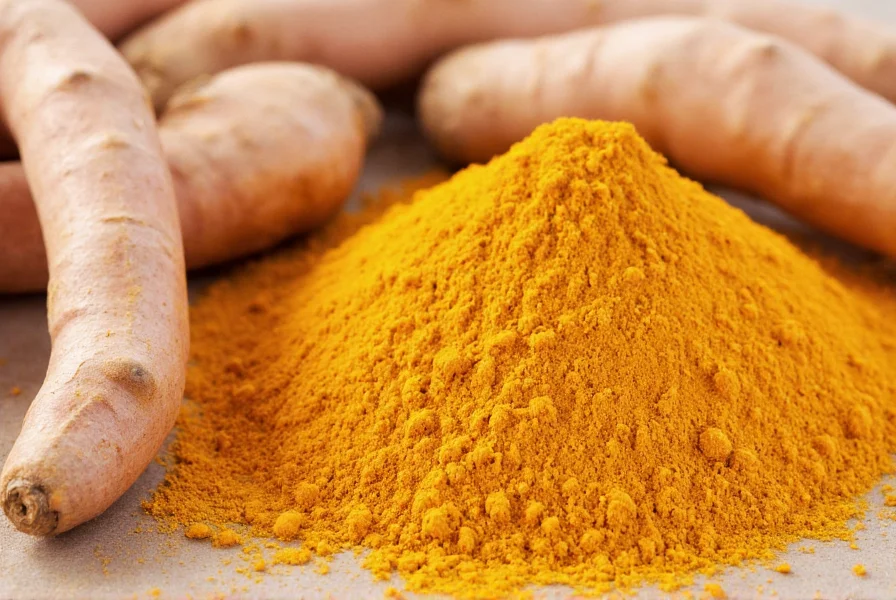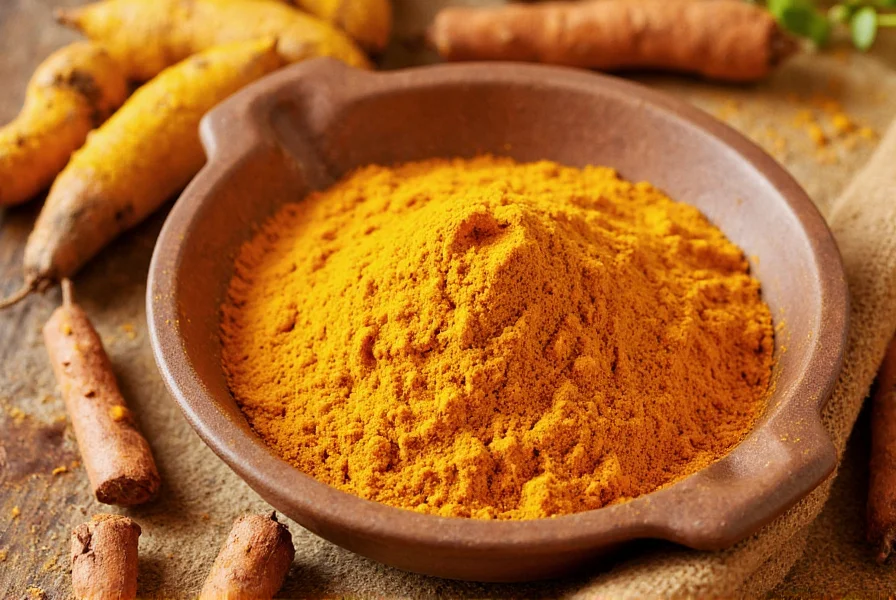For centuries, turmeric has been a staple in traditional medicine systems across Asia. Modern science is now validating many of these traditional uses, revealing compelling evidence about what turmeric is good for. This golden spice, derived from the Curcuma longa plant, contains curcumin as its primary active component, which accounts for most of its scientifically studied health benefits.
The Science Behind Turmeric's Benefits
Curcumin, making up about 2-8% of most turmeric preparations, is the compound responsible for turmeric's vibrant yellow color and most of its therapeutic properties. What makes turmeric good for health primarily relates to curcumin's powerful anti-inflammatory and antioxidant capabilities. Unlike many pharmaceutical anti-inflammatories, curcumin works through multiple pathways in the body without significant side effects when used appropriately.

Key Health Benefits Supported by Research
1. Powerful Anti-Inflammatory Effects
Chronic inflammation is now recognized as a contributor to many modern diseases. What turmeric is particularly good for is addressing this underlying issue. Multiple studies, including research published in the Journal of Medicinal Food, demonstrate that curcumin can inhibit several molecules known to play major roles in inflammation. This makes turmeric benefits for inflammation comparable to some anti-inflammatory drugs but without the adverse effects.
2. Joint Health and Arthritis Management
One of the most well-documented turmeric for arthritis relief applications comes from clinical trials showing significant improvement in symptoms of osteoarthritis and rheumatoid arthritis. A study in the Journal of Alternative and Complementary Medicine found that curcumin supplementation provided better pain relief and functional improvement than diclofenac sodium in patients with knee osteoarthritis. How does turmeric help with joint pain? Primarily through its ability to reduce inflammatory markers like C-reactive protein.
3. Antioxidant Protection
Turmeric's antioxidant properties help neutralize free radicals while also stimulating the body's own antioxidant enzymes. This dual action makes it particularly effective for combating oxidative stress, which contributes to aging and many diseases. The scientific evidence for turmeric benefits in this area is robust, with numerous studies confirming its ability to increase antioxidant capacity in the body.
4. Brain Health and Cognitive Function
Curcumin increases levels of brain-derived neurotrophic factor (BDNF), a growth hormone that functions in the brain. Decreased levels of BDNF are linked to depression and Alzheimer's disease. Research published in the American Journal of Geriatric Psychiatry suggests that curcumin may improve memory and attention in people with mild, age-related memory loss. This represents one of the most promising turmeric benefits for brain health.
5. Heart Health Support
Studies indicate that curcumin improves the function of the endothelium (the lining of blood vessels), which is crucial for regulating blood pressure and preventing clotting. A review in Advances in Nutrition concluded that curcumin supplementation significantly reduced LDL cholesterol and triglycerides while increasing HDL cholesterol, demonstrating clear turmeric benefits for heart health.
| Health Benefit | Key Research Findings | Recommended Daily Intake |
|---|---|---|
| Inflammation Reduction | Curcumin reduced inflammatory markers by 30-50% in clinical trials | 500-1,500mg curcumin |
| Joint Pain Relief | 77% of arthritis patients reported improvement with curcumin supplementation | 500mg twice daily |
| Antioxidant Boost | Increased antioxidant enzyme activity by 15-30% in human studies | 400-800mg curcumin |
| Cognitive Support | 29% improvement in memory tests among older adults in clinical trials | 90mg twice daily (standardized extract) |
Maximizing Turmeric's Benefits: Practical Considerations
Understanding what turmeric is good for health requires addressing a critical limitation: poor bioavailability. Curcumin is poorly absorbed into the bloodstream. The best way to consume turmeric for health benefits involves strategies to enhance absorption:
- Combine with black pepper: Piperine in black pepper increases curcumin absorption by up to 2,000%
- Consume with healthy fats: Curcumin is fat-soluble, so pair with avocado, olive oil, or coconut oil
- Heat activation: Gentle heating can increase curcumin's bioavailability
- Consider standardized extracts: Look for products with 95% curcuminoids and enhanced absorption technology
Important Considerations and Potential Side Effects
While turmeric is generally safe when consumed in food amounts, higher therapeutic doses require consideration. Some people may experience digestive upset at doses above 1,500mg daily. Turmeric can interact with blood thinners and diabetes medications, so consult your healthcare provider before starting supplementation if you have medical conditions or take prescription medications.

Conclusion: What Turmeric Is Good For
The scientific evidence for turmeric benefits continues to grow, validating many traditional uses while revealing new potential applications. From reducing inflammation to supporting brain and heart health, turmeric offers multiple evidence-based health benefits when consumed properly. Remember that while turmeric shows promise as a complementary approach, it should not replace conventional medical treatment for serious conditions. Incorporating turmeric into your diet through cooking or taking properly formulated supplements represents a practical way to harness these benefits as part of an overall healthy lifestyle.
Frequently Asked Questions
What is the most scientifically supported benefit of turmeric?
The most scientifically supported benefit of turmeric is its anti-inflammatory properties. Numerous clinical studies demonstrate that curcumin, turmeric's active compound, effectively reduces inflammatory markers in the body. This makes turmeric particularly beneficial for conditions involving chronic inflammation, such as arthritis, with research showing significant improvement in joint pain and mobility.
How much turmeric should I take daily for health benefits?
For general health maintenance, 500-1,000mg of curcumin (the active compound in turmeric) daily is typically sufficient. Therapeutic doses for specific conditions like arthritis often range from 1,000-1,500mg of curcumin daily, divided into multiple doses. Remember that curcumin has poor bioavailability, so look for formulations containing piperine (from black pepper) or phospholipids to enhance absorption. Always consult with a healthcare provider before starting high-dose supplementation.
Can turmeric help with arthritis pain?
Yes, multiple clinical studies confirm that turmeric, specifically its curcumin component, can help reduce arthritis pain. Research published in the Journal of Medicinal Food found that 1,000mg of curcumin daily significantly reduced pain and improved function in osteoarthritis patients. Another study showed curcumin was as effective as ibuprofen for knee osteoarthritis but with fewer gastrointestinal side effects. The anti-inflammatory properties of curcumin target the root cause of arthritis pain rather than just masking symptoms.
What's the difference between turmeric and curcumin?
Turmeric is the yellow spice derived from the Curcuma longa plant's root, while curcumin is the primary active compound within turmeric responsible for most of its health benefits. Turmeric contains only about 2-8% curcumin by weight, which is why many supplements use concentrated curcumin extracts. When discussing what turmeric is good for, it's primarily the curcumin content that provides the anti-inflammatory and antioxidant effects, though other compounds in turmeric may contribute to its overall benefits.
How long does it take to see benefits from turmeric?
The timeframe for experiencing turmeric benefits varies by application. For inflammation and joint pain, many studies show noticeable improvement within 4-8 weeks of consistent daily use. Antioxidant effects may be detectable in blood tests within 2-4 weeks. Cognitive benefits often require 8-12 weeks of regular supplementation. Individual results vary based on dosage, formulation (standardized extracts work faster), and personal health factors. Consistency is key, as curcumin needs to accumulate in the body to reach therapeutic levels.











 浙公网安备
33010002000092号
浙公网安备
33010002000092号 浙B2-20120091-4
浙B2-20120091-4